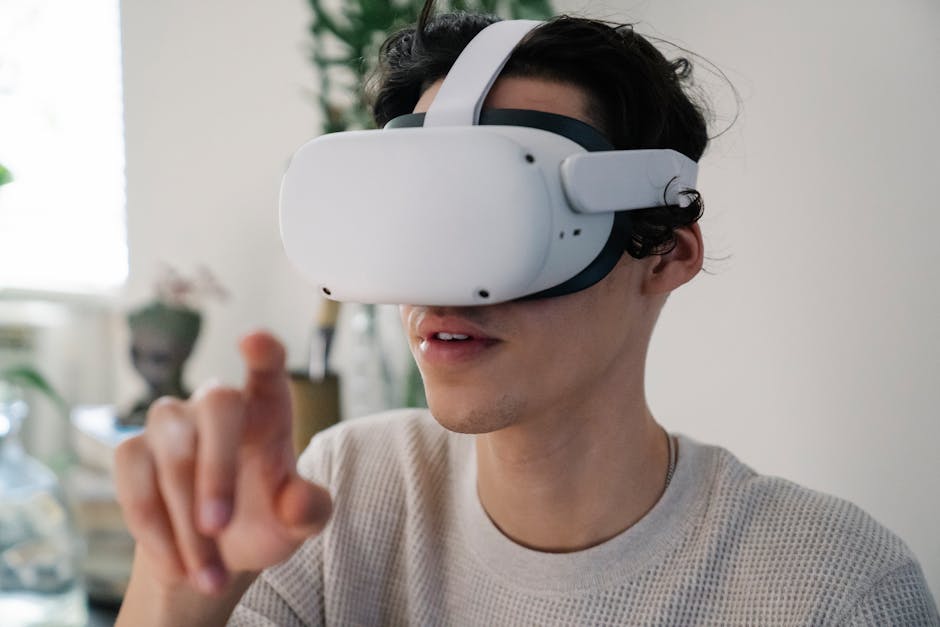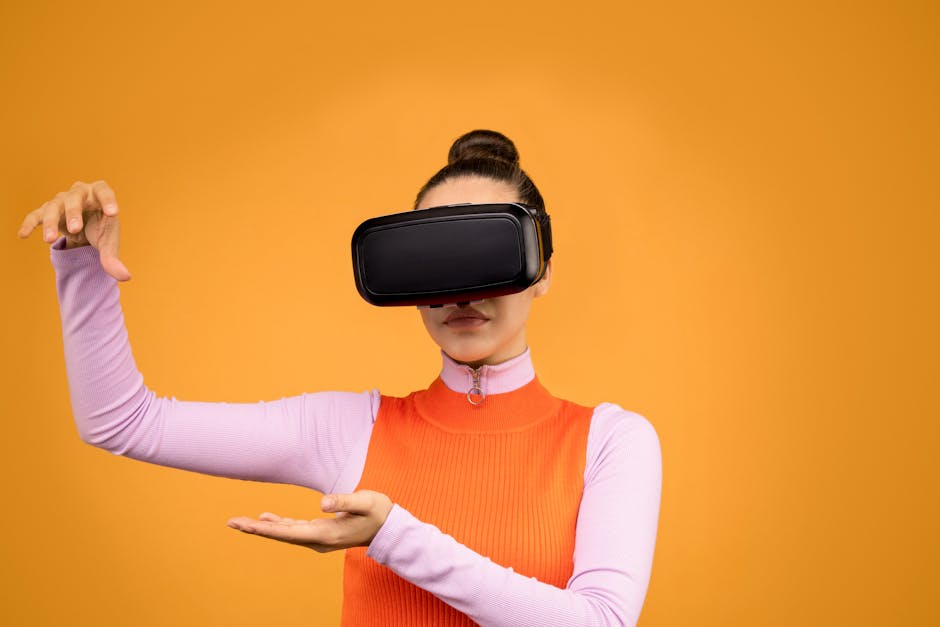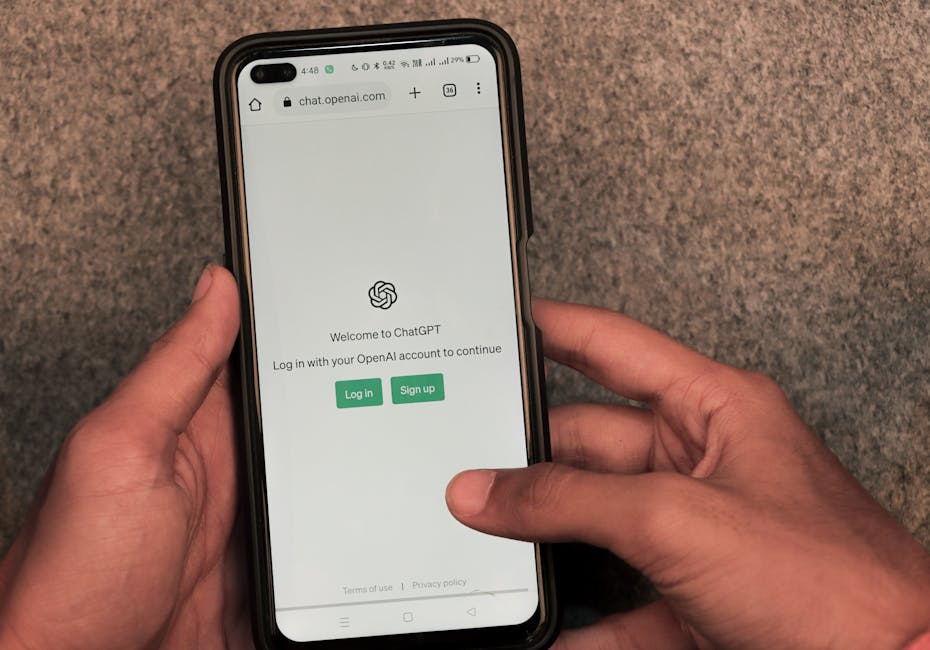Augmented Reality in SEO: Transforming Digital Marketing Today
In an age where digital marketing is rapidly evolving, the intersection of augmented reality (AR) and SEO is paving the way for innovative user experiences that captivate audiences like never before. Imagine stepping into a virtual storefront or trying on products before buying them—all from the comfort of your home. As AR technology becomes more accessible, businesses are finding creative ways to integrate it with their SEO strategies. This article delves deep into the impact of AR on SEO, revealing how companies can navigate this new digital landscape and maximize interactive user experiences.
The Surge of Augmented Reality in Digital Marketing

Augmented reality is more than just a flashy trend; it’s reshaping how businesses engage with their customers online. Reports from Statista indicate that AR in retail is set to grow exponentially, reaching a projected market value of over $100 billion by 2025. This explosive growth means marketers need to consider how AR can enhance their SEO efforts.
Imagine a potential customer being able to view a piece of furniture in their living room or trying out makeup virtually. This level of interactivity can draw users into your content, improving engagement metrics such as time on page, and lowering bounce rates. These factors contribute positively to your SEO, making AR a powerful tool for any digital marketing campaign.
How Augmented Reality Enhances User Experience

Immersive Interactions

One of the hallmarks of augmented reality is its ability to create immersive experiences. Users can interact with your brand in ways they never could with static images or text. For instance, consider furniture giant IKEA, which has effectively utilized AR in its app to let customers visualize how a piece of furniture fits in their home. This not only improves user experience, but also boosts conversion rates, providing a clear signal to search engines that your page is providing value.
Higher User Engagement

Traditional web layouts can sometimes fail to keep visitors engaged. However, AR can increase user engagement significantly. By creating experiences that prompt users to interact with your content actively, you can keep them on your site longer. Increased engagement and lower bounce rates are positively correlated with improved SEO rankings. The longer users engage with your site, the more likely they are to return, and we all know return visitors are golden in the digital space.
Including AR experiences can do wonders for your branding efforts, as users are more likely to share immersive interactions on social media, further amplifying your reach. Social proof plays a critical role in SEO, influencing search rankings and bringing in more organic traffic.
Linking Augmented Reality to SEO Strategy

Optimizing AR Content for Search Engines

To ensure that your AR content is discoverable, it’s essential to optimize it for search engines. This begins with the basics: using relevant keywords in your AR content, optimizing meta tags, and ensuring that your AR technology is mobile-friendly. As mobile AR experiences become more mainstream, search engines will begin to prioritize mobile-compatible sites.
For example, the integration of AR in your ecommerce site can open up opportunities for local SEO as well. This enhances visibility in local searches, especially for businesses that have a physical location. By linking your AR offerings to your local SEO strategy, you can attract foot traffic along with online users.
Rich Snippets and Schema Markup

Augmented reality can also benefit from schema markup. This structured data allows search engines to recognize AR content more effectively. By using schema to tag your AR experiences, businesses can create rich snippets that stand out in search results, attracting more clicks.
For instance, when someone types in “how to try on glasses virtually,” an AR-enabled site employing effective schema may rank higher due to its visually rich meta descriptions and promotional offers.
Measuring the Impact of AR on SEO Performance

Analyzing Engagement Metrics

To truly gauge the effectiveness of AR in your SEO strategy, it’s crucial to measure engagement metrics. Use analytical tools such as Google Analytics to track user interaction with your AR features. Monitor metrics like time spent on site, click-through rates, and conversion rates.
Setting clear KPIs related to your AR initiatives will help you track progress, allowing for adjustments to your strategy as necessary. It’s essential to iterate based on the data: if a particular AR experience is driving traffic, explore ways to enhance it further.
The Role of A/B Testing
A/B testing should be a cornerstone of your AR projects. By developing two versions of an AR experience and analyzing which performs better, you can refine your approach. This could extend to variations in design, interactivity, or even the content itself.
Continuously optimizing your AR experiences will help you maintain a competitive edge and keep your target audience engaged. Companies like Pepsi have famously leveraged A/B testing with great success, showcasing the benefits of data-driven decisions in marketing strategies.
Future Trends: Augmented Reality and SEO in 2025
The Rise of Voice Search and AR
As we look ahead to 2025, the reliance on voice search will continue to rise. With technologies like Google Assistant and Alexa becoming staples in households, the integration of AR and voice search will become more seamless. This means that optimizing for voice search will also impact how AR content is created.
Consider the potential for a user to say, “Show me how this plant looks in my room using AR,” and receiving a quick, interactive response. Hence, businesses must start adapting their SEO strategies now to include voice search optimization.
Exciting Developments in AI and AR Integration
Moreover, combining AI with AR technologies can further enrich the user experience. For example, employing AI to customize AR experiences based on user behavior and preferences can provide a more personalized touch, leading to improved user interaction.
Emphasizing User-Generated Content
User-generated content (UGC) will play an integral role in an AR-driven SEO landscape. Encouraging users to share their AR experiences can not only foster community engagement but can also create authentic backlinks that enhance site authority. This strategy can help nurture a loyal customer base while boosting your SEO performance through diverse content formats.
Insights from Industry Leaders
Learning from Successful Implementations
A variety of companies are raving success stories when it comes to integrating augmented reality into their SEO strategies. For example, beauty brands like Sephora allow customers to virtually try makeup on. Such initiatives not only enhance user experience but substantially influence purchasing decisions, reflecting in SEO performance.
Additionally, firms that have explored AR chatbots to assist customers during their online shopping journeys have reported higher satisfaction rates. Integrating AR into customer support can dynamically boost the user journey from frustration to delight, turning potential exit points into successful sales.
The Importance of Cross-Channel Experience
As augmented reality grows, the need for a cross-channel strategy becomes critical. AR experiences should not exist in a vacuum; they should link back to your website, social media, and even email marketing campaigns. A holistic approach that ensures customers can seamlessly move from AR engagement to purchasing will strengthen brand presence and amplify SEO results.
Engaging the Digital Community
One essential aspect to note is that fostering a digital community will be paramount. Whether it’s sharing AR experiences on social media or engaging with AR content through webinars and live sessions, building a dialogue around AR will keep your target audience engaged and informed. This community approach generates organic buzz around your brand, shaping brand loyalty and amplifying your SEO strategy.
Final Thoughts: The Future is Augmented
Augmented reality is set to transform the SEO landscape as businesses explore creative ways to enhance user experiences. By integrating AR into your strategies, you not only capture user attention but evoke emotional connections that lead to brand loyalty.
The synergy between AR and SEO will become increasingly apparent as we approach 2025, making it essential for marketers to understand and adapt to these trends now. The potential for increased engagement, enhanced brand experience, and higher search engine rankings is too significant to ignore.
As you embark on this journey into more interactive digital marketing, remember to continuously analyze, iterate, and innovate. The digital landscape is in your control—take the plunge into augmented reality and reimagine what’s possible for your SEO strategy.



